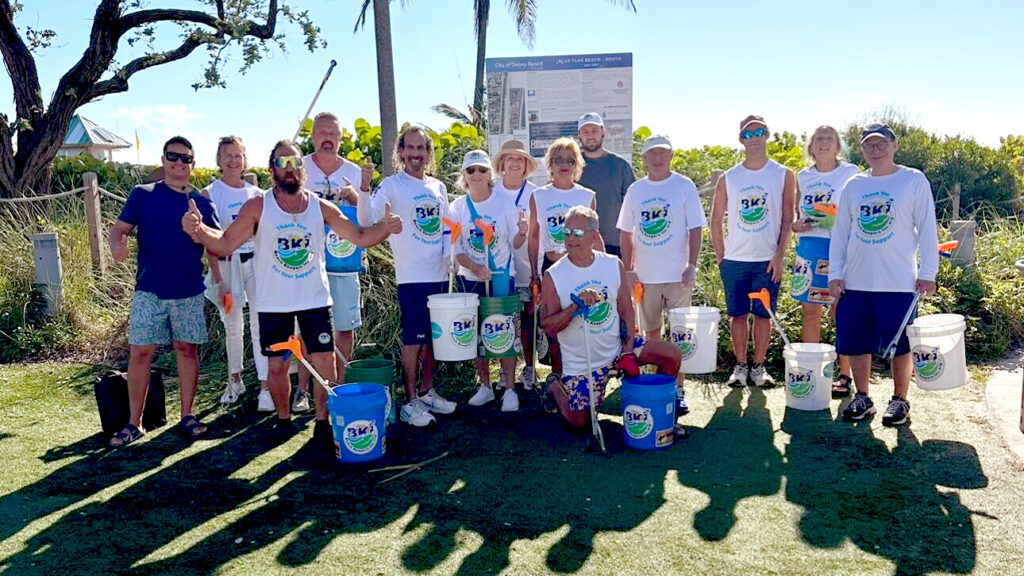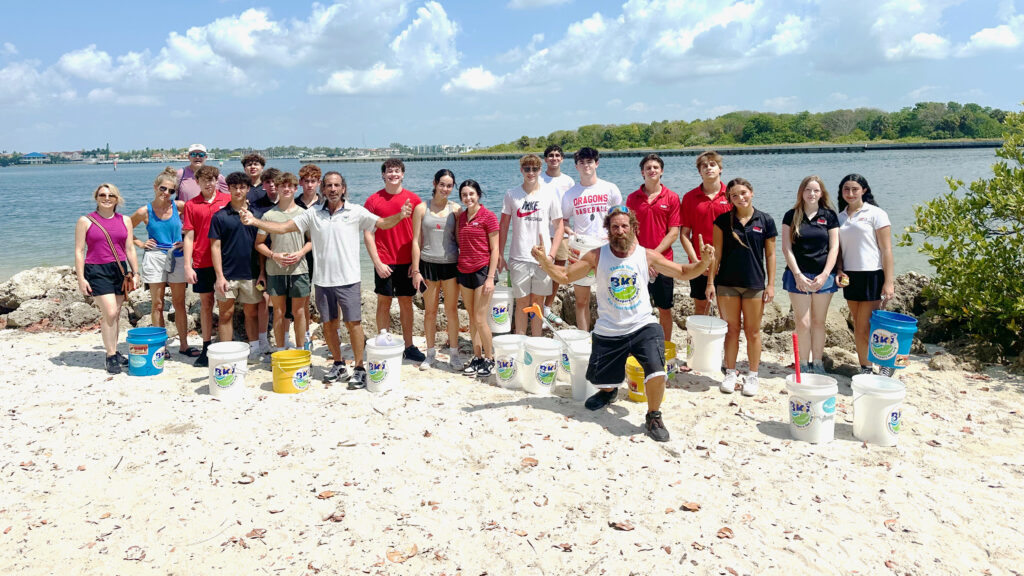Volunteering Partner: Jack The Bikeman

Our beaches and streets are the lifeblood of our communities. They’re places for relaxation, recreation, and connection with nature. But unfortunately, litter and pollution can quickly turn these havens into eyesores and health hazards.
The problem is vast.
According to the World Bank, the world generates over 2 billion tons of municipal solid waste annually, with that number expected to rise to 3.4 billion tons by 2050. This waste, if not disposed of properly, ends up in our streets, parks, and eventually, our oceans.
But fear not! There are many things we can do as individuals and communities to keep our environment clean. Here’s a step-by-step approach:
Individual Responsibility:
- Reduce: The first and most crucial step is reducing waste generation. Avoid single-use plastics, opt for reusable bags and water bottles, and buy products with minimal packaging. Consider all parts of a product’s lifecycle – is it made from recycled materials? Can it be refilled or composted? By making informed choices, we can collectively reduce the amount of waste entering the system in the first place.
- Reuse: Before tossing something, consider if it can be given a new life. Donate clothes and furniture, refill containers, and get creative with upcycling projects. Organize clothing swaps with friends or neighbors to extend the lifespan of garments. Many household items can be repurposed for new uses – an old jar can become a storage container, for example.
- Recycle: Recycling programs vary by location, so familiarize yourself with what’s accepted in your community. Rinse recyclables properly to avoid contamination and keep the recycling stream clean. Don’t be afraid to reach out to your local waste management company if you have questions about what can be recycled.
Community Action:
- Organize clean-up events: Gather friends, family, and neighbors for a beach or park clean-up day. Partner with local businesses or organizations to sponsor the event and provide refreshments or cleaning supplies. Make it a fun and social event – play music, create a competition for the most interesting piece of trash collected, and celebrate your contribution to a cleaner community.
- Spread awareness: Educate others about the importance of proper waste disposal. Put up posters with catchy slogans or hold educational talks at schools. Social media can be a powerful tool for spreading awareness. Share photos of clean-up events or statistics about pollution to inspire others to take action.
- Support local initiatives: Many communities have ongoing clean-up programs or volunteer opportunities. Get involved and show your support! Look for organizations dedicated to beach clean-up, river restoration, or neighborhood beautification projects. Every hour you contribute makes a difference.

Strategic Solutions:
- Invest in more trash cans: Having readily available bins discourages littering. Work with your local municipality to ensure there are enough trash cans in high-traffic areas, and that they are emptied regularly. Encourage the use of designated bins for recyclables and compostables to divert waste from landfills. This not only reduces the amount of trash going to landfills but also creates valuable resources like compost.
- Improve street sweeping: Regular street sweeping removes debris before it can be carried away by wind or rain. Advocate for increased sweeping frequency in your area, especially after storms or high winds.
- Encourage community gardens: Community gardens not only beautify neighborhoods but also provide opportunities for composting food scraps and yard waste. Fresh produce can be grown in community gardens, reducing reliance on grocery store packaging and transportation emissions.
Long-Term Vision:
- Support legislation: Lobby for stricter regulations on packaging and single-use plastics. Advocate for policies that incentivize waste reduction and recycling. Contact your local representatives and express your support for environmental protection initiatives.
- Invest in sustainable infrastructure: Support initiatives to develop better waste management systems and explore composting options at a larger scale. Composting food scraps and yard waste diverts organic material from landfills and creates a valuable soil amendment.
- Promote eco-friendly businesses: Support businesses that prioritize sustainability. Choose products with minimal packaging and those committed to responsible waste disposal practices. Look for businesses that offer package-free options or have take-back programs for used products.
Keeping our community clean is a collective effort. By taking these steps, we can create a healthier environment for ourselves, our wildlife, and future generations.
Remember, every little bit counts – from throwing away your trash properly to participating in clean-up events and advocating for systemic change. Let’s work together to turn the tide on pollution and create a cleaner, brighter future for our communities.
Volunteering Partner: Jack The Bikeman

Leave a Reply